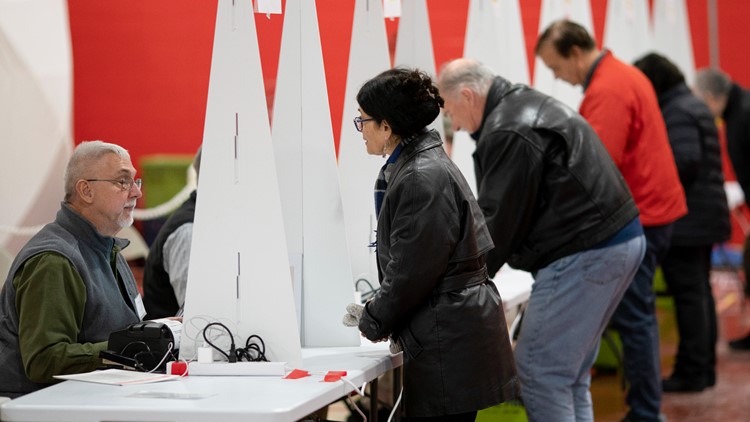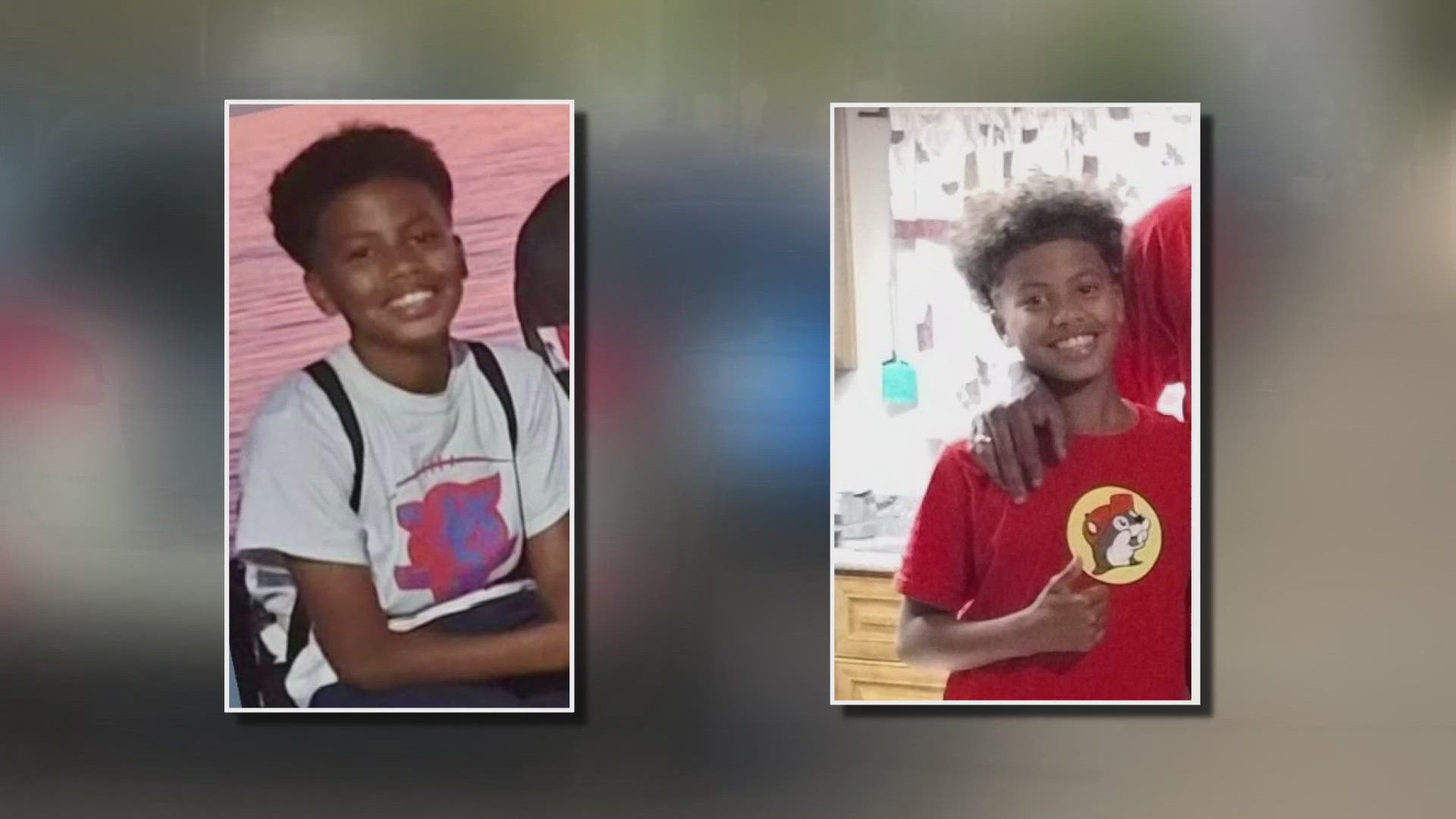The presidential nominating process officially kicked off Jan. 15 with the Iowa caucuses, as candidates vie to represent the Democratic and Republican parties in the 2024 general election in November.
Primaries and caucuses aren’t like typical elections; they’re held separately by states, and sometimes by political party, over the course of several months. The rules can vary drastically by state and party.
VERIFY answers the key questions about caucuses and primary elections.
QUESTION #1
Have primaries always existed?
THE SOURCES
- Library of Congress
- Northeastern University
- Richard H. Pildes, Professor of Constitutional Law at New York University, writing in The Washington Post
- A Promise Fulfilled? Open Primaries and Representation, an academic article in The Journal of Politics
THE ANSWER
No. Primary elections did not exist until the 20th century, and did not become the main way nominees were chosen until the 1970s.
WHAT WE FOUND
For most of American history, the major political parties decided their presidential nominees not through public elections, but private conventions.
The earliest nominees were decided in small meetings by the members of a particular party who had been elected to Congress.
In the mid-19th century, those meetings were expanded to full-fledged conventions where party delegates from various states would vote on the nominee. But historians say deeply entrenched establishment leaders within the parties – known as bosses – still held sway over those delegates. Rank-and-file voters were not given a means to weigh in.
The first presidential primaries weren’t held until the early 1900s. Voters could make their nominee preference known, and then their state’s delegates might be obligated to vote for that person at the convention, depending on the rules in their state, historians say.
It wasn’t until the 1970s that enough states had primaries that voter preference became the dominant factor in deciding the nominee; until then, the nominees in both parties remained mostly decided by party superiors.
The first presidential nominee chosen under the modern primary system was Democrat George McGovern in 1972, who would go on to lose in the general election to Richard Nixon.
QUESTION #2
Is there a difference between a caucus and a primary?
THE SOURCES
THE ANSWER
Caucuses function differently from primaries. Caucuses are run by state political parties and almost always require in-person attendance, whereas primaries are usually run by the state government and follow that state’s typical election procedures.
WHAT WE FOUND
The logistics of presidential primary elections are often similar to those of ordinary elections. The state government is in charge of printing and distributing ballots, opening and operating polling places, and tabulating the votes – these protocols are often outlined by the Secretary of State’s office for each state.
State-run primaries are guided by state laws, and funded with tax dollars. There are state-run primaries in 43 states, according to the Federal Election Commission. The Republican party in two of those states – Nevada and Utah – have elected to opt out of the primary and instead hold their own caucus in 2024.
Caucuses are run and funded by state political parties. This gives the parties near-total control over how the election is run – such as enforcing their own voter identification requirements, picking times and locations, printing ballots, and deciding how votes get counted – as long as they abide by federal voting rights laws.
Historically caucuses could be hectic events, with supporters giving speeches to persuade people to physically move into their candidate’s corner of the venue to indicate support. But in recent years most caucuses have adopted more traditional voting via secret ballots, VERIFY’s survey of 2024 caucus rules found.
Still, caucuses tend to have unique quirks. Typically, caucuses require in-person attendance (although recently the Democratic Party of Iowa has decided to allow a special form of mail-in voting for its caucus). Caucuses can be held in a wide range of locations including government buildings, community centers, schools, churches, or even homes. They can feature speeches from candidates’ supporters. They may also have unorthodox voting procedures compared to modern primaries – for instance in Iowa, Republican caucus-goers write a name on a blank piece of paper dropped into a brown paper bag.
QUESTION #3
Can anyone show up to a caucus site and cast a vote?
THE SOURCES
THE ANSWER
No. Participants must be registered voters of the state where the caucus is being held, and sometimes must be registered members of a specific party.
WHAT WE FOUND
To participate in a caucus, rules state you must be a registered voter in the state where the caucus is being held.
In most cases, the party running the caucus also requires participants to be registered with their particular party, VERIFY’s analysis of caucus rules found. Specific rules vary by state.
Some caucuses allow participants to register to vote or register with the party on-site. Others require voters register well in advance; for instance, to vote in the Idaho Republican caucus you had to have registered as a Republican in Idaho by Dec. 31, 2023.
Generally, you also must participate at the caucus being held in your local precinct. In some states this is enforced by checking your name against voter rolls for the precinct; in others you are required to bring proof of address to the caucus venue.
QUESTION #4
Can a Democrat vote in a Republican presidential primary, or vice versa?
THE SOURCES
- National Conference of State Legislatures
- Open Primaries
- State election laws and Secretaries of State
THE ANSWER
Rules vary by state. Some states allow voters to pick a primary to participate in, regardless of their affiliation; others restrict voters to participating in the primary of the party they’re registered with. Rules also vary for independent or unaffiliated voters.
WHAT WE FOUND
State rules for primary participation vary state to state, and different organizations such as the National Conference of State Legislatures and the nonprofit advocacy group Open Primaries classify these rules in different ways. VERIFY compared such classifications, and analyzed examples using state laws and information from state election offices.
Some states have closed primaries – meaning only registered members of a party can vote in that party’s primary. In these states, voters who are unaffiliated with any party are unable to participate in the presidential primaries. Examples of states with closed primaries include Florida and New York.
Some states have open primaries – meaning voters don’t register with any party, and can pick any party’s primary to vote in. But they can still only vote in one primary. Often voters are required to sign a statement that temporarily makes their party choice public record. Examples of these states include Washington, Texas, and South Carolina.
Some states have semi-open primaries, where voters registered with one party can only participate in that party’s primary, but unaffiliated voters are allowed to pick a primary to vote in. Depending on the state, picking a party’s primary may effectively register the voter with that party, but they may also be given the option to un-register. Examples of such states include New Hampshire and Colorado. Donald Trump has misleadingly claimed Democrats are allowed to vote in the New Hampshire Republican primary, but only registered Republicans and unaffiliated voters are – registered Democrats can only vote in the Democratic primary.
QUESTION #5
Are primary elections all held on the same day, like with the general election in November?
THE SOURCES
- Federal Election Commission
- Democratic National Committee
- State election laws and Secretaries of State
THE ANSWER
No. States hold their primaries on different days, and in some states different parties also have different election days. Specific dates are determined by a combination of state laws, state election officials, and national political parties.
WHAT WE FOUND
VERIFY found through analyzing various election codes that the laws in most states, like Texas and California, prescribe a specific day for the primary to be held.
In a few states, like Georgia and South Carolina, the law grants state elections officials or state parties the authority to pick the date. In South Carolina, the Democratic and Republican parties have chosen different dates, resulting in a split primary.
Uniquely, New Hampshire state law directs the Secretary of State to set a date at least a week prior to any other state’s primary.
Dates for caucuses are determined by state parties.
National parties also have some influence over when primaries can be held.
For instance, the Democratic National Committee decided that for 2024 it wanted South Carolina’s primary to be first, as opposed to New Hampshire’s, in order to allow a more diverse state to set the tone. The DNC also wanted Nevada, Georgia, and Michigan to hold their primaries earlier than they had historically, and Iowa to hold its caucus later.
The Iowa Democratic Party elected to comply with the DNC’s decision by not announcing the results of its caucus until March 5, although it began sending out ballots to voters in January.
Nevada’s Democrat-controlled state legislature had already passed a law in 2021 moving its primary up to the date later approved by the DNC in 2023. Soon after the new calendar was formally proposed, Michigan’s Democrat-controlled legislature similarly passed a law moving up the state’s primary.
New Hampshire’s Republican-controlled legislature, however, refused to pass a law removing the first-in-the-nation requirement. Many Democrats in the state also expressed opposition to the idea. As a result, the DNC deemed the New Hampshire Democratic primary “non-compliant” with party rules and announced that its results will be “meaningless.” This means New Hampshire may not have any recognized delegates at the Democratic National Convention.
Georgia’s Republican Secretary of State also declined to move the state’s primary to the DNC’s selected date. However, the DNC has yet to say whether Georgia will be punished for holding its primary outside of the party-approved calendar.



